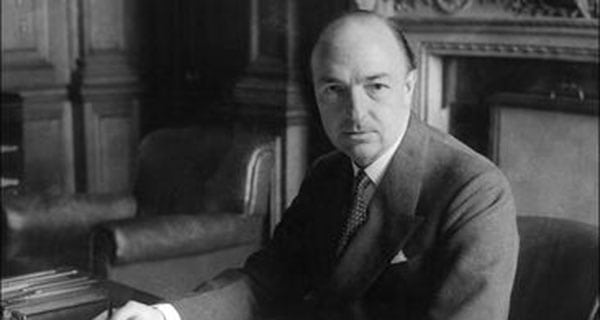 In 1961, British War Minister John Profumo, a married man, had a brief, tawdry affair with teenage party girl Christine Keeler. Among Keeler’s other lovers was Yevgeny Ivanov, a Soviet military attaché and intelligence agent.
In 1961, British War Minister John Profumo, a married man, had a brief, tawdry affair with teenage party girl Christine Keeler. Among Keeler’s other lovers was Yevgeny Ivanov, a Soviet military attaché and intelligence agent.
When this potential threat to national security was raised in the House of Commons, Profumo did a foolish thing: he told a lie and denied that he had engaged in any “impropriety” with Keeler, who was a model and showgirl.
Now, the British don’t mind politicians lying, nor do they care much about how the gentry cavorts with lower-class young men or women. But they do take misleading the House very seriously. Telling lies to a reporter or your constituents may all be part of a politician’s life. But deliberately fibbing inside the sacred precincts of Parliament is just not done.
So Profumo was forced to resign in disgrace. He disappeared from public life.
Profumo was a wealthy man who could have happily lived off his private income. Instead, in his darkest moment, he took up charity work in inner-city London. Never seeking any publicity, he dedicated his life to raising money for Toynbee Hall and its labours on behalf of the city’s poor.
In 1975, British society recognized Profumo’s redemption – he was made a Commander of the Order of the British Empire and was received by the Queen and the prime minister.
He died in 2005, a well-respected citizen.
Profumo’s story is inspiring but it could never happen in contemporary North America. The likelihood of a cabinet minister resigning over a question of honour is very small; try to recall the last time that happened.
But the main reason why the example of Profumo will not be imitated is that modern society doesn’t forgive. There’s no sense that an apology for a past misdeed is anything but a sign of weakness and a signal to intensify the attack. There’s no sense that a person’s life is always a mixture of light and darkness. Now, a blot on a person’s character defines it forever.
Take the case of a baseball pitcher Josh Hader of the Milwaukee Brewers. In his youth, Hader used bad words on social media about homosexuals and African Americans. He was publicly castigated when someone unearthed the old posts. He was required to take sensitivity classes, and has since apologized for what he called “inexcusable” and “immature” remarks.
Naturally, his repentance has resulted in further condemnation from the morally superior and professionally offended. Michael Powell of the New York Times sports department – the place where we always go for lessons in proper behaviour – is determined that Hader’s crimes not be forgotten.
In a recent article, reprinted in the Globe and Mail, Powell claims that he’s not unforgiving of youthful stupidity but then denounces Hader anyway. He then accelerates into a denunciation of baseball fans in Milwaukee who had the effrontery to applaud the player on his first home-town start after the revelations of his teenage posts were made.
The only reason that Powell could think of for cheering a star pitcher was – and you knew this was coming – racism. Hader was white. The baseball crowd was largely white. And for Powell, baseball itself is too white.
See how easily the argument flowed, from a cheap denunciation of a teenager’s bad behaviour to a blanket accusation of racism against America’s national pastime. If you wonder why readership of American newspaper sports pages is at an all-time low or why ESPN is hemorrhaging millions of subscribers, you need look no further than the moral preening of Powell and his colleagues.
The abandonment of forgiveness as a social value is also evident in Canada. We’ve seen the campaigns against national heroes who centuries ago performed acts that today’s social justice warriors find repugnant – John A. Macdonald, Egerton Ryerson, Lord Cornwallis, Marie-Marguerite d’Youville and others are now put in the corner of shame, never to re-emerge.
The desire to wallow in the misdeeds of bygone years may well reach its apex in Austin, Texas. The city council set up a commission to identify those prominent men and women of the past who need to have their statues taken down or names removed from schools, parks or hospitals because of behaviour that was unremarkable centuries ago but which is now seen as an unspeakable crime. Any connections with the Confederacy are viewed as especially heinous.
Oops. As any first-year history student could have told that council of the virtuous, Stephen F. Austin, the man known as the “Father of Texas,” the man after whom the city was named, was a proponent of slavery. It’s fair to say that without his leadership, Texas might still be a part of Mexico. But will that fact be enough to bring a measure of forgiveness and save his name? Let’s watch to find out.
Gerry Bowler is a Canadian historian and a senior fellow of the Frontier Centre for Public Policy.
The views, opinions and positions expressed by columnists and contributors are the author’s alone. They do not inherently or expressly reflect the views, opinions and/or positions of our publication.
This site is Powered by Troy Media Digital Solutions

